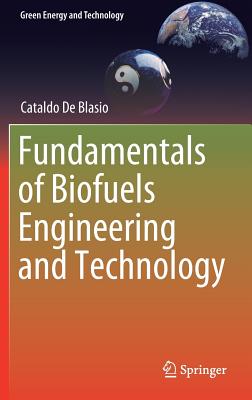Biodiesel Fuels Based on Edible and Nonedible Feedstocks, Wastes, and Algae: Science, Technology, Health, and Environment
暫譯: 基於可食用與非可食用原料、廢棄物及藻類的生物柴油燃料:科學、技術、健康與環境
Konur, Ozcan
- 出版商: CRC
- 出版日期: 2021-05-06
- 售價: $8,920
- 貴賓價: 9.8 折 $8,742
- 語言: 英文
- 頁數: 402
- 裝訂: Hardcover - also called cloth, retail trade, or trade
- ISBN: 036745615X
- ISBN-13: 9780367456153
-
相關分類:
化學 Chemistry
海外代購書籍(需單獨結帳)
商品描述
This second volume of the Handbook of Biodiesel and Petrodiesel Fuels presents a representative sample of the population papers in the field of feedstock-specific biodiesel fuels.
The research on feedstocks for biodiesel fuels has first focused on the edible oils as first-generation biodiesel fuels. However, the public concerns about the competition with foods based on these feedstocks and adverse impact on the ecological diversity and deforestation have resulted in the exploration of nonedible-oil-based biodiesel fuels as second-generation biodiesel fuels in the first instance.
Due to the ecological and cost benefits of treating wastes, waste oil-based biodiesel fuels as third-generation biodiesel fuels have emerged. Furthermore, following a series of influential review papers, the research has focused on the algal oil-based biodiesel fuels in recent years. Since the cost of feedstocks in general constitutes 85% of the total biodiesel production costs, the research focused more on improving biomass and lipid productivity in these research fields. Furthermore, since water, CO2, and nutrients (primarily N and P) have been major ingredients for the algal biomass and lipid production, the research has also intensified in the use of wastewaters and flue gases for algal biomass production to reduce the ecological burdens and the production costs.
Part 1 presents a representative sample of the population papers in the field of edible oil-based biodiesel fuels covering major research fronts. It covers soybean oil-based biodiesel fuels, palm oil-based biodiesel fuels, and rapeseed oil-based biodiesel fuels as case studies besides an overview paper.
Part 2 presents a representative sample of the population papers in the field of nonedible oil-based biodiesel fuels covering major research fronts. It covers Jatropha oil-based biodiesel fuels, polanga oil-based biodiesel fuels, and moringa oil-based biodiesel fuels as case studies besides an overview paper.
Part 3 presents a representative sample of the population papers in the field of waste oil-based biodiesel fuels covering major research fronts. It covers wastewater sludge-based biodiesel fuels, waste cooking oil-based biodiesel fuels, and microbial oil-based biodiesel fuels as case studies besides an overview paper.
Part 4 presents a representative sample of the population papers in the field of algal oil-based biodiesel fuels covering major research fronts. It covers algal biomass production in general, algal biomass production in wastewaters, algal lipid production, hydrothermal liquefaction of algal biomass, algal lipid extraction, and algal biodiesel production besides an overview paper.
This book will be useful to academics and professionals in the fields of Energy Fuels, Chemical Engineering, Physical Chemistry, Biotechnology and Applied Microbiology, Environmental Sciences, and Thermodynamics.
Ozcan Konur is both a materials scientist and social scientist by training. He has published around 200 journal papers, book chapters, and conference papers. He has focused on the bioenergy and biofuels in recent years. In 2018, he edited 'Bioenergy and Biofuels', that brought together the work of over 30 experts in their respective field. He also edited 'Handbook of Algal Science, Technology, and Medicine' with a strong section on the algal biofuels in 2020.
商品描述(中文翻譯)
這本《生物柴油與石油柴油燃料手冊》的第二卷展示了在特定原料生物柴油燃料領域的代表性研究論文樣本。
對於生物柴油燃料的原料研究最初集中於可食用油,作為第一代生物柴油燃料。然而,公眾對於這些原料與食品之間的競爭以及對生態多樣性和森林砍伐的負面影響的擔憂,促使人們探索以非可食用油為基礎的生物柴油燃料,作為第二代生物柴油燃料的首要選擇。
由於處理廢物的生態和成本效益,基於廢油的生物柴油燃料作為第三代生物柴油燃料逐漸出現。此外,隨著一系列有影響力的綜述論文的發表,近年來的研究重點轉向了基於藻類油的生物柴油燃料。由於原料成本通常佔生物柴油生產總成本的85%,因此研究更集中於提高這些研究領域中的生物質和脂質生產力。此外,由於水、二氧化碳(CO₂)和營養物質(主要是氮和磷)是藻類生物質和脂質生產的主要成分,因此研究也加強了利用廢水和煙氣進行藻類生物質生產,以減少生態負擔和生產成本。
第一部分展示了可食用油基生物柴油燃料領域的代表性研究論文樣本,涵蓋主要研究前沿。它包括以大豆油、棕櫚油和菜籽油為基礎的生物柴油燃料作為案例研究,並附有概述論文。
第二部分展示了非可食用油基生物柴油燃料領域的代表性研究論文樣本,涵蓋主要研究前沿。它包括以麻風油、波朗加油和莫林加油為基礎的生物柴油燃料作為案例研究,並附有概述論文。
第三部分展示了基於廢油的生物柴油燃料領域的代表性研究論文樣本,涵蓋主要研究前沿。它包括以廢水污泥、廢食用油和微生物油為基礎的生物柴油燃料作為案例研究,並附有概述論文。
第四部分展示了基於藻類油的生物柴油燃料領域的代表性研究論文樣本,涵蓋主要研究前沿。它包括一般的藻類生物質生產、廢水中的藻類生物質生產、藻類脂質生產、藻類生物質的水熱液化、藻類脂質提取和藻類生物柴油生產,並附有概述論文。
這本書將對能源燃料、化學工程、物理化學、生物技術與應用微生物學、環境科學和熱力學等領域的學術界和專業人士有所幫助。
Ozcan Konur是一位受過材料科學和社會科學訓練的專家。他已發表約200篇期刊論文、書籍章節和會議論文。近年來,他專注於生物能源和生物燃料。2018年,他編輯了《生物能源與生物燃料》,匯集了30多位專家在各自領域的研究成果。他還在2020年編輯了《藻類科學、技術與醫學手冊》,其中有一個強調藻類生物燃料的部分。
作者簡介
Ozcan Konur is both a materials scientist and social scientist by training. He has published around 200 journal papers, book chapters, and conference papers. He has focused on the bioenergy and biofuels in recent years. In 2018, he edited 'Bioenergy and Biofuels', that brought together the work of over 30 experts in their respective field. He also edited 'Handbook of Algal Science, Technology, and Medicine' with a strong section on the algal biofuels in 2020.
作者簡介(中文翻譯)
Ozcan Konur 是一位受過材料科學和社會科學訓練的專家。他已發表約 200 篇期刊論文、書籍章節和會議論文。近年來,他專注於生物能源和生物燃料。2018 年,他編輯了《Bioenergy and Biofuels》,匯集了超過 30 位專家在各自領域的研究成果。2020 年,他還編輯了《Handbook of Algal Science, Technology, and Medicine》,其中包含了強調藻類生物燃料的部分。













